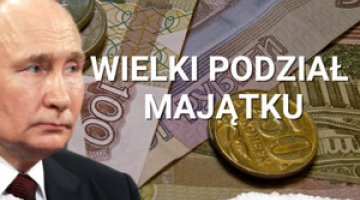An ambiguous alliance: Putin visits Kazakhstan
On 27–28 November, Vladimir Putin paid a state visit to Kazakhstan. He was accompanied by several officials, including deputy prime ministers, ministers of foreign affairs and energy, as well as the CEOs of Gazprom and Rosatom. In a joint statement, Putin and Kazakh President Kassym-Jomart Tokayev emphasised the durability of their countries’ allied relations, the absence of contentious issues, and respect for territorial integrity. Several agreements were signed, including in the spheres of energy, education, and transport.
The visit also encompassed a summit of the Collective Security Treaty Organization (CSTO) held in Astana with the participation of the leaders of Belarus, Kyrgyzstan, and Tajikistan. Notably, Armenian Prime Minister Nikol Pashinyan declined to attend for the second consecutive time. The event served as a symbolic gathering of post-Soviet states, with numerous references to the 80th anniversary of the victory in the Second World War. Putin delivered a speech justifying Russia’s use of the Oreshnik missile against Ukraine. Currently, the CSTO functions primarily as a tool of Russian policy with limited practical effectiveness.
Putin’s visit has failed to bring a breakthrough regarding the strategic energy issues present in Kazakh–Russian relations. Despite friendly gestures towards Russia, Astana avoided expressing clear support for its foreign policy. Contrary to Russia’s expectations, no agreement was signed regarding Rosatom’s participation in the construction of a nuclear power plant in Kazakhstan. Similarly, no decisions were made to allow Russia to use the Kazakh gas infrastructure or to construct a new pipeline through Kazakh territory to increase its gas exports to China. The visit was marked by numerous references to the close ties between the two countries, particularly cultural and historical connections, which can be regarded as a success for Moscow. Astana did not challenge Russia’s narrative in this regard, although it emphasised its own distinct status.
Commentary
- The visit represented an ostentatious display of favourable relations between Kazakhstan and Russia, marking Putin’s second visit to Kazakhstan this year. For Astana, it was crucial to reaffirm the inviolability of its borders in response to Moscow’s repeated calls for their revision–calls voiced by high-ranking officials such as Dmitry Medvedev, who referred to Kazakhstan as an ‘artificial entity’ in August 2022, and more recently by parliamentarians and media propagandists. Russia appreciated the fact that Kazakhstan formally confirmed the allied nature of its relations with the Russian Federation, despite Kazakhstan refraining from supporting Russia’s war against Ukraine, which was in line with its usual practice. Tokayev emphasised his concern for the Russian-speaking citizens of Kazakhstan, as it was at his initiative that an international organisation for the promotion of the Russian language was established last year. The display of friendship between the two countries and their leaders was enhanced by the choice of venue and its positive atmosphere.
- No significant agreements were signed in the energy sector, which is crucial for both sides. Although shortly before the visit Putin supported Rosatom’s efforts to assume a leading role in the construction of a nuclear power plant in Kazakhstan, no agreement was reached in this regard. In October, a referendum was held to allow the launch of the investment, with its estimated value being $10–12 billion. The Kazakh authorities seek to have an international consortium undertake the project, with Rosatom intending to act as the consortium leader. Aside from the Russian bid, proposals submitted by China, South Korea, and France are also under consideration. The selection process for bidders, the specifics of their cooperation, and the details of project financing remain unclear at present. No agreements have been signed regarding the use of Kazakhstan’s infrastructure for the transmission of Russian gas to China (a move that would grant Moscow leverage over Kazakhstan’s strategic sector) or the construction of a new pipeline linking Russia, Kazakhstan, and China. However, the agreement on preferential supplies of Russian oil and petroleum products to Kazakhstan has been renewed, remaining in force until 2028. The Kazakh Ministry of Energy previously estimated that by the end of this year, Kazakhstan could import 285,000 tonnes of gasoline, 300,000 tonnes of jet fuel, 450,000 tonnes of diesel, and 500,000 tonnes of bitumen from Russia. Additionally, an agreement was reached regarding the modernisation of a coal-fired power plant in the Pavlodar region with the assistance of Russian specialists.
- Relations between Kazakhstan and Russia are ambivalent, as highlighted by the recent visit. Political, economic and social ties remain strong, with Moscow possessing significant tools to shape them, including its influence over the political elite, sway among the Russian-speaking minority, and Kazakhstan’s reliance on Russian pipelines for oil exports. Astana increasingly anticipates that the outcome of the war in Ukraine may favour Russia. Unable to risk worsening relations with Moscow, Kazakhstan aims to ‘tame’ its neighbour by offering concessions, including those concerning the Russian language and education system. For instance, three new schools with Russian as the language of instruction are to be established, along with a branch of MGIMO opening in Astana. Simultaneously, Kazakhstan has consistently refrained from making binding decisions in the energy sector that might deepen its dependence on Moscow. Instead, it capitalises on favourable offers, such as the 2023 agreement for constructing three combined heat and power plants in the northern part of the country, valued at $6 billion. To counterbalance Russia’s influence, Kazakh authorities are actively advancing political and economic cooperation with China while bolstering ties with Turkey and EU nations.




